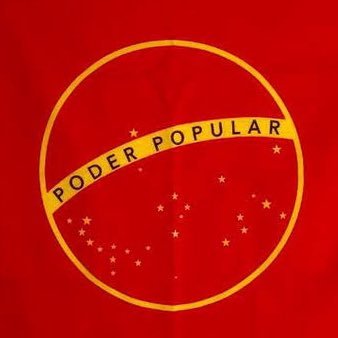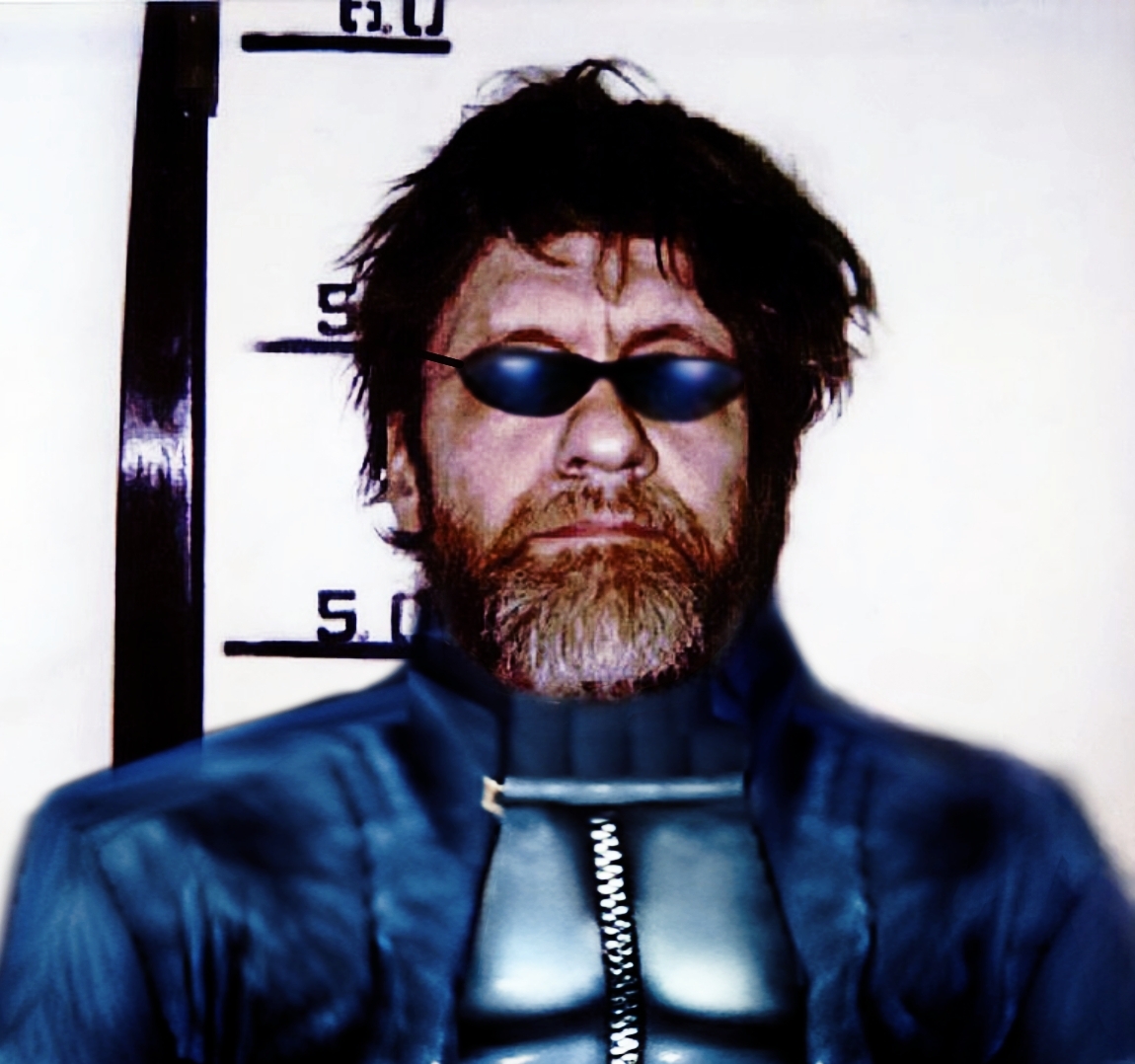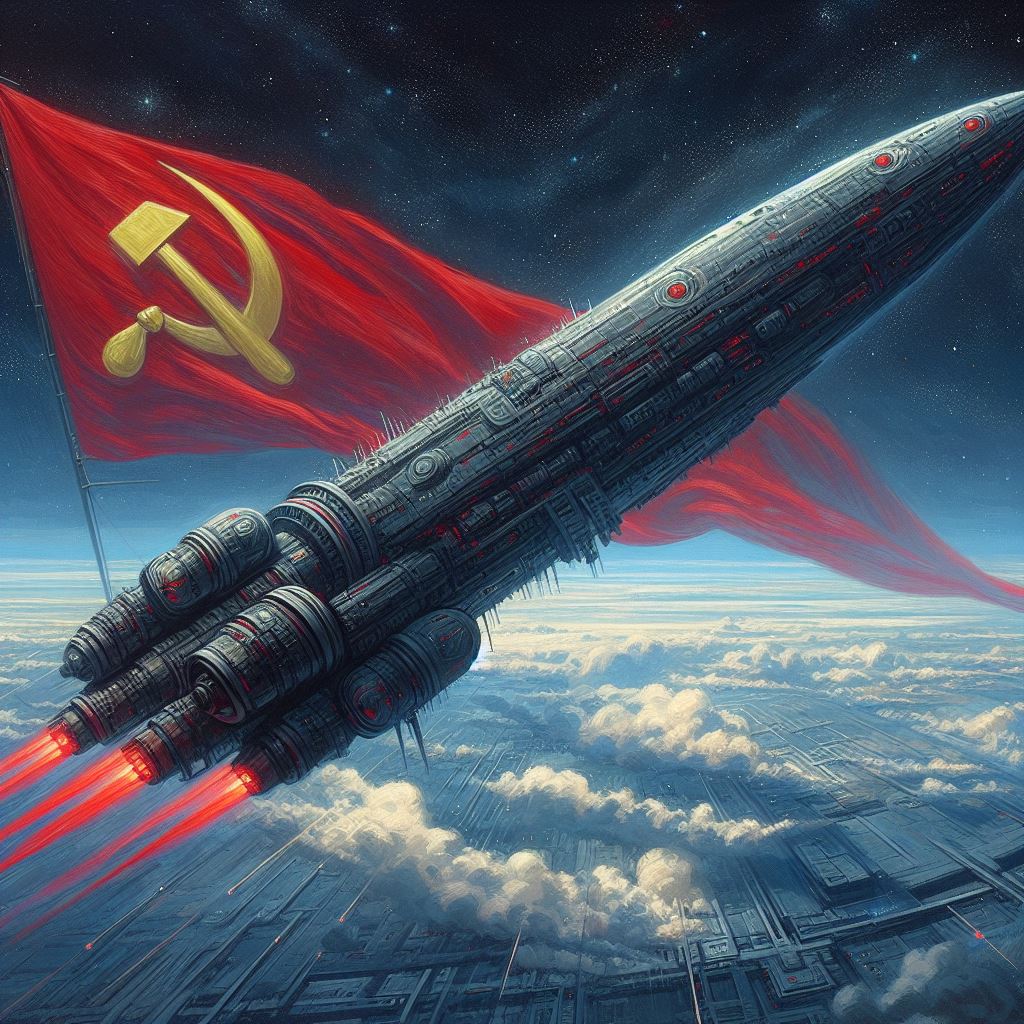The Federation is Socialist, but Star Trek is not a Marxist piece of media.
It follows a Liberal, Democratic-Socialist, Reformist line of thinking - that, at least once the world has been shocked by the brutality of global war and eugenics - Humanity will "come to it's senses" and move towards Democratic Socialism through reform. When post-scarcity is achieved, the Capitalist class will just let this happen.
It is a Socialist world devoid of the ideas of class conflict; it presents a world compatible with Socialist ideals but not one compatible with scientific Socialist theory.
That's not to say you can't still like Star Trek as a show or use the Federation as an example of a good Socialist society. You just have to keep in mind that the world's history does not make sense when viewed through the lens of Marxist class conflict.
once the world has been shocked by the brutality of global war and eugenics - Humanity will “come to it’s senses” and move towards Democratic Socialism through reform
The "brutality of global war and eugenics" already happened in WW2, but did Humanity come to it's senses? Even after it ended?
Even if it did, has a certain bald eagle allowed them to come to senses?
but Star Trek is not a Marxist piece of media
If anything, i've seen much more direct claims (not mine) that it's anticommunist: https://communistkenobi.tumblr.com/post/737508042870079488/the-missing-context-from-this-post-is-that-any
I think the degree to which people call tos a socialist utopia or socialist media (and therefore unimpeachably progressive) is wildly out of proportion to what is actually in the show, which is an anti-communist, american imperial prosperity fantasy of exploring an infinitely vast, infinitely ‘exotic’ frontier. tos depicts a post-scarcity, post-money society, and so the colonial logic of exploration* in the show shifts from pursuing material resources to epistemic ones, and space is an unlimited resource from which to extract, refine, and ultimately reassert Western intellectual supremacy, all of which is set against the context of the Cold War. The racism and misogyny are not antiquated bigotries mistakenly grafted onto an otherwise progressive utopia, they are a fundamental part of the narrative engine that drives tos forward. *exploration itself is not colonial, but tos’ conception and depiction of it is indistinguishable from orientalist stories about western explorers finding barbaric, exotic, uncivilisable peoples who can be studied, observed, and used as examples to reassert the fundamental rationality of Western society. the fact that the enterprise does not (usually) steal or pillage material resources from the aliens they encounter does not make this relationship less colonial in its framing
https://communistkenobi.tumblr.com/post/737463878390366208/ok-so-the-omega-glory-episode-in-tos-written-by
ok so the omega glory episode in tos (written by gene rodenberry, the creator of star trek) is an alternate history style episode where the Enterprise discovers a planet like Earth where the communist “asiatics” (in the words of the show) took over the world instead of the americans, but instead of acting as a global civilising force over “non-civilised” people (as america is presented to have done in the show via a global democratic Earth government that the enterprise explores on behalf of), it turned americans into barbarians, converting them into pre-civil “native americans,” because a communist force, specifically a racialised eastern one, only has the capacity to degrade the lands and peoples it conquers, to destroy “enlightened” settlers so thoroughly they convert “back” to a savage indigenous race. tell me again how this show is socialist
I do, however, have no first-hand experience of watching any ST installments.
This is completely wrong, and you probably shouldn't be answering if you haven't watched a single trek show.
Can you explain further? Or do the articles you posted in your top level comment do so?
That specific TOS episode sounds pretty dire as described. So id like to know what the counterpoint is.
Yeah, read those first, or better, watch the show. I'd have to recall that specific episode, but a single star trek episode can't undo several series each with hundreds of episodes of fully automated luxury gay space socialism. The op had not seen a single series, and was arguing by proxy.
The old show had some cringe moments and episodes, but it's spirit was also anti-imperialist and socialist. It even had chekov, a russian character, at the height of the cold war. Could you imagine a show nowadays having a chinese or russian character that isn't openly liberal.
Using the Original Series episodes for this examination is a bit unfair. That show was on a shoestring budget and they were making up the world building as they went along. Thr futuristic post scarcity utopia thing came more with TNG. In the time between TOS and TNG, Roddenberry wasn't getting much TV work and did the convention circuit a lot where he was worshipped a bit too much and too often by fans and was also a beatnik sex guy who was drinking and doing pills a lot and started believing his own hype. Star Trek always presented a better future and something to strive towards but in TOS the society and economic model was shown to still be pretty similar to 1966 America (tos had currency, it gets mentioned often), but it the time between with Roddenberry's ego getting pumped and him attending Q&A sessions where he'd just make shit up about the world building. By the time TNG came around he had all these half baked utopian ideas going around his drug addled brain and was given wayyyy too much creative control at the start of tng and took things too far in many places like arguing that a child wouldn't morn his dead parents cause they were too enlightened for that now. After he died things got rolled back by about a third to a semi reasonable but poorly thought out utopia.
As a big retro Dungeons and Dragons fan, I've grown really tired over the years of the "Anything that even remotely resembles a 'Colonial Trope' is bad" arguments.
Just because Star Trek depicts a post-class society (and is vague about how it arrives there), doesn't make it not Marxist. It just focuses on the end result of Marxism (the abolition of classes / post-class), rather than the historic period of class conflict.
My point was that the Socialist society of Star Trek's Federation was not arrived through class struggle - it imagines a world where the Capitalist class just "allowed" Socialism to happen, instead of manufacturing scarcity to maintain their positions.
I was not claiming that the Federation in Star Trek is not compatible with Marxism/is not a Marxist state; I am claiming that the world of Star Trek does not work according to the Marxist understanding of historical materialism. Instead, it uses the Democratic-Socialist framework - it ignores bourgeois class interests and imagines a world where progress can be made through peaceful Democratic reform.
You're focusing on a period of socialism that Star Trek doesn't depict, and criticizing things that are missing (the historic period of class struggle), not what's there (a post-class society focused on exploration and mutual cooperation with other worlds).
It seems a stretch to say trek is demsoc, or that the transition was a peaceful reformist one. We're given hints that the abolition of classes occurred after a violent nuclear world war which nearly destroys humanity, massive internal upheavals and poverty, and the arrival of vulcans. I agree it'd be nice if that was elaborated upon more, but that's a different show, and certainly not one that would be allowed to be made in the belly of the beast.
I would argue that broadly it is. I present one of my favorite quotes from the show as evidence:
“The acquisition of wealth is no longer the driving force in our lives. We work to better ourselves and the rest of humanity.”
― Capt. Jean-Luc Picard
Agree, and deep space nine really gets into the complexities of defending AES from imperialist powers(USSR or PRC vs USA), and indigenous resistance (maquis, bajor). Sisko (basically federation Stalin), nailed it with the line: "Its easy to be a saint in paradise".
“Its easy to be a saint in paradise”.
- Benjamin "Fred" Sisko, "On Authority"
I watched and loved the entirety of DS9 and never thought that Sisko did anything wrong. Maybe I should rewatch, I don’t know.
In a lot of previous trek shows, the federation is occasionally under siege, but its nearly always depicted as a simple "good vs evil" trope, and the federation never has to get it hands dirty, or do morally questionable things. For the most part, the federation is just peacefully exploring the galaxy, and enjoying paradise.
But that's not how things usually are: we know from experience that socialism is always under siege / under attack from imperialist powers, and as a response they have to develop armies and war industries, intelligence services, cultivate alliances, move populations, and practice realpolitik. Deep space nine forces its characters to encounter these moral conundrums, and we empathize with them. Its easy to be a saint in paradise, but its much more difficult to live in the real world of moral ambiguity where protecting your people is the most important thing.
the federation condemns the marquis and their acts, sisko is somewhat sympathetic with then and says that is easy to criticize the marquis, people that got kicked out of their homes for being violent, when we have our bellies full
The two main anatagnositic forces in DS9 are the Cardassian Empire and the Dominions - different flavours of fascism. Sisko will often use tactics not technical fitting within the moral framework of the Federation to defend the Federation from both.
yes, utopian communist society, meaning is a imagined version of what communism could be.
although 0 marxism there, fucking great show to break away from capitalist realism, the very least get us to dream that this shit we living in is the best that we can get
The Culture series did utopian communism way better than Star Trek could ever hope to.
I'm not sure if it should be called Utopian as there are enemies outside and at the same time their conditions are due to materialism, specially the super intelligent AIs controling infrastructure and production on the background and talking to everyone to help them realize their dreams, for example, while also keeping an eye on anyone that tries to disturb the peace, be they external or internal, and so on.
Well it's utopian on roughly the same level the Federation in Star Trek is. A 100% full utopia with absolutely no problems would make for a pretty boring book or TV series.
What I like more about The Culture is the author really tried to imagine how the social structure of such an advanced society would look like while Star Trek is basically an idealized version of the US but in space.
I would argue it's almost communist, though it did not come to this part thorugh marxist revolution but by capitalism dissolving after heavy destruction of capitals and capitalists in WW3 and then alien tech transfers propelling humanity to postscarcity before capitalism managed to redevelop globally - or something like that, the process was never described in lore.
Federation as described clearly seems to be moneyless and classless, though there are two problems. First is the obvious existence of government, though to be fair on a more local, planetary level those do seems to be more like just administrations Lenin mentioned than real governments, and the central Federation government is also seeming to at least follow the democratic centralism and its existence is clearly because resistance to neighbouring powers like Romulans, Klingons or Cardassians. Of course there is the Starfleet but its description as at most paramilitary force is correct, even after multiple wars in 2370+ forced further organisation into military, and Starfleet itself is clearly organised more like civilian agency. Also note there is basically no army whatsoever, the armed personnel shown is just Starfleet Security, the least popular and least prestigious branch of Starfleet.
Second are cultural differences between the members of the Federation, though it's also shown so rarily we can't tell much.
Finally, notable mention for Tellarites seeming to be ML's already way before Federation was formed.
The Federation government doesn't do things and therefore is not socialist
Some articles going into this more:
- Star trek and its debt to revolutionary socialism.
- Anti-Imperialism of Star Trek
- Star trek - A legacy of diversity.
- According to Gene Roddenberry's (Star Trek's creator) wife, Magel Barret, Gene was a communist, favoring the Chinese model of Communism as his ideal.
- Does star trek promote communism?
- The Star Trek Communist Hopes.












